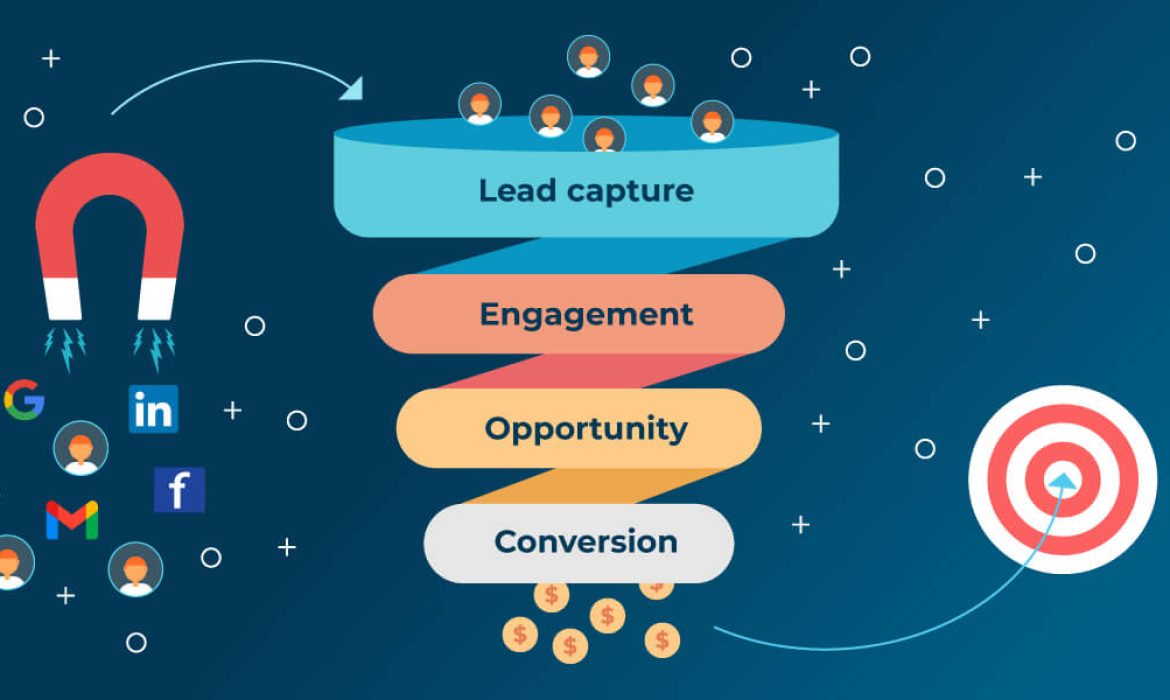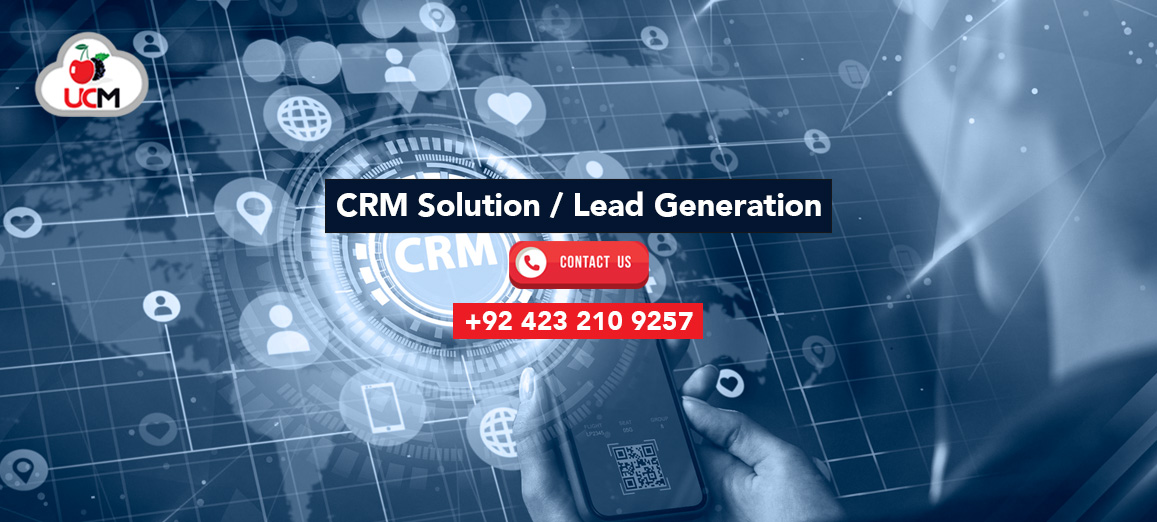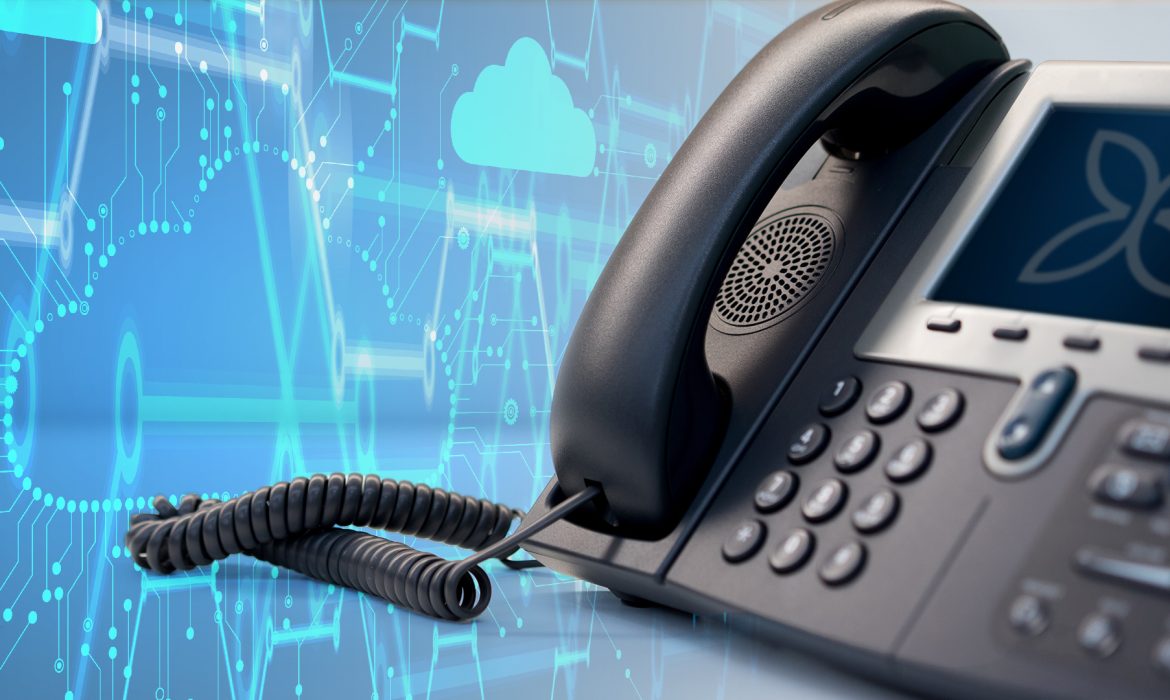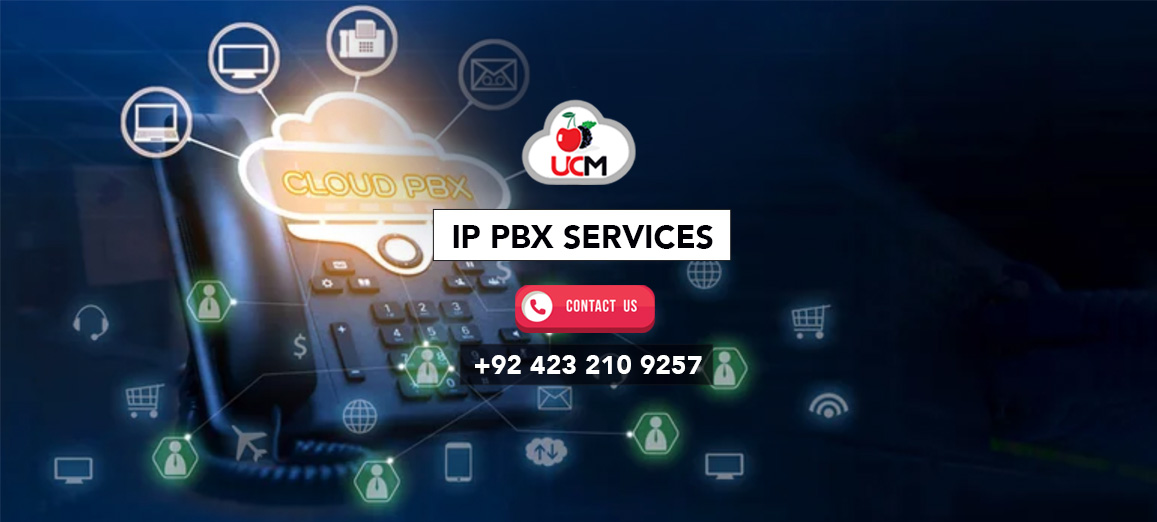How to Ensure Effective Call Center Management?
What is Call Center Management?
Call center management is the process of managing routine call center operations of a business to ensure effective customer interaction. The effective contribution of your call center agents to manage these call-related processes improves your call center’s performance. Although there is no definite formula to ensure the success of a call center, the use of the right and modern call center technology diminishes the chances of getting anything wrong. Typically, call center agents handle both incoming and outgoing customer calls from new and existing customers looking to find solutions to their queries. They offer a wide range of digital channels to ensure smooth and efficient interaction with their customers which can add to the workload of your agents. However, you can examine the way your team works to provide quality services to your customers.
How Does A Call Center Work?
Call center agents have to manage a lot of things in their routine operations. The main purpose behind all the efforts revolves around customers whether it be inbound calling operations or outbound call management. For instance, customers call the customer service department of a business to resolve their concerns and queries. Inbound call center agents manage incoming customer calls to resolve their issues. Sometimes, call center agents call customers to achieve different business goals. For instance, they initiate outbound calls for reminders, surveys, telemarketing and more. In this outbound calling process, customers learn about new products, participate in the survey or can even make a purchase . Some call centers offer both inbound and outbound customer calls while others offer services from remote locations. A business administration has full access to the call recordings and call volume details. They can use this data to improve agent performance or make informed decisions.
Significant Strategies for Efficient Contact Center Services
1. Outline Goals Clearly
First of all, companies should initiate the process by setting up particular objectives for their call centers. For instance, they can aim to enhance customer satisfaction levels, reduce call response time and more.
2. Do Investment in Training
Call centers should arrange continuous training programs for their agents to keep them well-updated about the latest technology and methods. They should promote a learning environment so agents have the required product information and knowledge of industry trends.
3. Ensure Efficient Use of Technology
Call centers can automate their routine tasks to enhance their agents’ efficiency. They can integrate CRM systems to access their customer data to offer personalised services.
4. Track & Analyze Metrics
Call center administration can monitor their agents’ performance by analysing key performance indicators such as resolution time, response time and customer satisfaction level. They can use this data to identify areas that need improvement and make data-driven decisions.
5. Enhance Agents Efficiency
It is the responsibility of a business call center to provide agents access to automated technology and tools. This facility will empower your agents to resolve their customers’ issues more efficiently.
6. Provide Multi-Channel Facility
In today’s digital environment, customers want to communicate with companies through desired communication channels. Call Center Management services can incorporate different communication channels like email, chat and social media platforms to fulfill diverse customer needs.
Conclusion: How Can Cherry Berry UCM Help?
Indeed, the success of your business depends on efficient call center management. The administration can check the agent’s performance by accessing their call recordings in day-to-day interactions with clients. Companies can encourage their agents to prioritise the needs of their customers. Cherry Berry UCM can help you achieve your business objectives and offer a remarkable customer service experience. The collaboration with our expert team will enable your business to stay adapted to changing market trends. The improved customer service experience not only grows your business but also keeps your customers intact with your brand longer.
Boost Conversion with Efficient Lead Generation Service Provider
Partner with Right Lead Generation Service Provider
Nowadays, high-quality leads, interested in your offerings and services, have become a necessity for the call center of companies to mark their presence in competitive markets. Even, lead generation is a critical aspect of outbound calling services to identify potential leads and convert them into potential customers. Outbound lead generation allows the generation of leads in a shorter time through cold calls, email marketing, or social media. However, companies can outsource this process by hiring an expert Lead Generation Service Provider like Cherry Berry UCM to achieve qualified leads. Let’s delve deep into how an effective outbound lead generation process helps your business establish credibility and trust.
What are Common Ways for Lead Generation?
Companies can generate leads through multiple methods but cold calling, email marketing and social media are considered the most effective ways. In outbound call centers, the process of calling customers who have never shown any interest in your service or product but come into your target market is called cold calling. It is a highly effective strategy to attract new leads to turn them into loyal customers. Moreover, companies can also send marketing emails to potential customers having the capability to respond to digital communication. This will enhance their interest in your services. Social media platforms like Twitter and LinkedIn are also effective ways to keep existing customers engaged and attract new ones. Businesses can outsource their lead generation processes to an efficient Lead Generation Service Provider to drive more sales and enhance online visibility.
How Does the Lead Generation Process Work?
Typically, the lead generation process contains four steps. It starts with the identification of the target audience. The next phase is the initiation of messages to attract them, access them through their desired communication channels and end with follow-up. The first stage of lead generation is to identify the targeted customers by determining location, interest, age and buying behaviour. After completion of this stage, your team of agents has to devise ways to contact them. They can do it by scripting a message to resonate with the target audience. Additionally, your team entices them to enhance their interest in your offerings. In the next phase, you will have to contact them through different communication channels like social media, email, or traditional advertising. Finally, your team needs to follow up and stay engaged with your leads to keep them interested in your brand.
How is the Outbound Lead Generation Process Beneficial For Your Business?
It enables companies to access a larger audience than the ones to which you communicate through inbound channels. For instance, this process reduces the time of your sales cycle especially when a dedicated team of lead generation experts work efficiently and focus on closing more deals. Moreover, outbound lead generation enhances your brand recognition and enhances your company’s reputation. When more leads are added to your sales funnel and converted into loyal customers, it enhances your sales and grows your business. The nurturing leads phase leads to an increase in sales by 50%. With the outbound lead generation process, you can reach new markets which may have any awareness of your services and offerings. Your team of agents can also use real-time analytics to track the best strategies to streamline the lead-generation process.
Final Thoughts
In today’s highly competitive business environment, companies need a highly effective outbound lead generation strategy to generate quality and qualified leads. The outsourcing of this process saves your company time and resources and allows you to focus on other critical aspects of business. Collaborate with an efficient Lead Generation Service Provider such as Cherry Berry UCM to access new markets, shorten your lead generation process and build reliable brand recognition.
Lead Generation in Call Centers: How to Nurture Leads Better?
Why is Lead Generation in Call Centers Important?
If we look back to marketing a few decades ago, we will notice a big change or shift in the trends these days. From predictive analytics to chatbots, artificial intelligence has transformed the way businesses generate leads or lead generation process work. The integration of virtual and augmented reality offers an immersive experience for leads while chatbots, conversational markets, and omnichannel communication ensure personalized interaction. Lead Generation in Call Centers has emerged as an essential aspect for companies that are still evolving with the latest trends and advancements in technologies. By adopting the latest trends in lead generation, companies can mark their unique presence in the competitive market and generate qualified leads. Let’s take a glimpse at the way businesses can nurture positive relationships with their existing customers and attract new prospects.
How Lead Generation & CRM Connected?
Customer relationship management (CRM) and lead generation are two important interrelated aspects of the business world. Lead generation refers to the process of attracting potential leads whereas CRM helps to maintain positive relationships with existing clients and keep them intact and loyal to your brand. Typically, lead generation is the first stage of the customer journey. Thus, after lead generation, companies should nurture positive relationships with customers to turn them into loyal customers. This is where CRM enters into the scene. With this software, companies can handle the entire process of their customer journey from generating leads to the last phase. In a nutshell, both CRM and lead generation work side by side to ensure a seamless customer service experience. Lead generation enables businesses to access new customers while CRM ensures to keep the existing ones engaged and satisfied. Together, they help companies to build long-lasting relationships with their customers.
How Does Lead Generation Enhance the Customer Journey?
Lead generation has a significant role in boosting a customer journey. This process offers companies a steady stream of potential leads. Companies can enhance their understanding of customer preferences and trends by nurturing leads and can formulate their sales pitch keeping this information in view. With this personalised interaction, your customers feel valued and likely to show interest in making a purchase. Lead generation also empowers enterprises to access the pain points and buying habits of their customers. They can use this information to enhance their overall quality of services and personalised interaction. Businesses can also ensure an improved and smooth customer journey by tracking the leads’ progress with the sales funnel. It enables companies to sort out leads that can potentially convert and focus on these leads. They can get ideas about all bottlenecks in the sales to bring improvement and develop meaningful connections.
How Does Integration of CRM & Lead Generation Impact on Success?
The integration of these two processes has a significant impact on a company’s sales efforts and marketing success. Businesses can achieve most of the lead generation efforts and can convert potential leads to loyal paying customers. The advantage of integrating CRM technology with lead generation is that companies can collect and store their customers and leads information in one central place including website activity, engagement level and demographic details. They can access this information anytime to make data-driven informed decisions like which potential leads to prioritise and how to nurture relationships with them. The integration of both processes also enhances the customer service experience. Companies can track the leads’ progress with the sales funnel and foster relationships with customers. They can ensure their customers remain satisfied and happy to enhance their loyalty to the business. Thus, enhance the impacts of your business marketing and sales efforts by integrating both processes.
Emerging Technologies in Lead Generation
Changing customer preferences and advancements in technologies will likely change the way companies manage Lead Generation in Call Centers. For instance, artificial intelligence has automated various repetitive tasks of business and enables administration to make better use of their leads data. Moreover, companies will switch to this approach in the future. Companies will also use technology and data to meet the expectations and preferences of each lead. The rise of omnichannel marketing has also encouraged companies to adopt omnichannel marketing strategies to access their customers through various communication channels like mobile apps, email and social media. As customers are becoming more concerned about data protection, enterprises put great emphasis on keeping customers’ data safe and ensuring its ethical use. These efforts and trends help companies build meaningful and long-lasting relationships with their customers to increase sales and conversion.
Significant Strategies for Lead Generation
1. SEO & Content Marketing
These are powerful strategies for lead generation in call centers. Companies can attract leads and prospects by creating valuable content and earning a positive brand reputation. The integration of content marketing with search engine optimisation enables companies to rank their content higher on top of search engine outcomes. This enhances their online visibility and brings organic visitors.
2. Social Media Marketing
These communication platforms are essential lead-generation channels. Businesses can access billions of active users on different social media networks like LinkedIn, Instagram and Facebook. These platforms provide extensive pools of potential leads.
3. Influencer Advertising
A strategy-based marketing campaign not only enhances engagement but also brings traffic to your website and promotes lead conversion. Companies can collaborate with influencers having significant fan followings to generate leads and target potential customers.
Final Thoughts: The Way Forward
Indeed, Lead Generation in Call Centers is an ever-evolving process that allows businesses to optimise their lead generation efforts, and maintain their position in a highly competitive marketplace. Lead generation empowers companies to access new markets and customers to expand their business. The integration of CRM technology with the lead generation process allows you to offer a more personalised experience to nurture your lead. If you are looking for a service to improve your lead generation efforts, hire the services of Cherry Berry UCM experts to implement effective lead generation strategies and stay adapted to evolving market trends and challenges.
How is Cloud Base IP PBX System a Smart Choice for Your Business?
Latest Trends in Cloud Base IP PBX System
Nowadays, it is essential for enterprises to keep their business up to date with the latest VoIP trends to benefit from a unified communication strategy. Gone are the days when companies had to make heavy infrastructure investments to access advanced features. With the evolution of PBX technology, the shift from traditional analogue PBX to a Cloud Base IP PBX System is happening quickly due to less maintenance needs, flexibility, scalability and lower costs. This technology ensures unified and seamless communication across multiple communication channels such as video, voice, email and chat. Moreover, after COVID-19, companies have moved to IP PBX solutions that allow remote work and enable employee connection and collaboration across the globe. The incorporation of automation and artificial intelligence technology provides further access to more advanced features like call routing, predictive analytics and chatbots. Let’s delve deep into the features and benefits of IP technology for businesses.
Why Premise-Based PBX Technology is Dying Out?
Traditional on-premises phone systems have been popular in the 1990 decade which allowed companies to perform on-site communication. This included the processes of making, responding and transferring calls. With these phone systems, businesses communicate with team members and customers alike. Automatic call routing and lineup were popular features of on-premises phone systems while a PBX system also placed calls in queue and distributed them to programmed routes. The PBX system was kept inside the building to store all information. However, advancements in technology have made these systems outdated. The latest systems offer better capabilities like remote working and offsite accessing of information. The addition of cloud-based technology has increased the worth of IP PBX systems for unified communication. For this reason, most companies have deactivated their traditional onsite PBX system to switch to cloud-hosted technology.
What A Cloud-Hosted IP PBX Technology Offer?
A cloud PBX refers to such a phone system that entirely works on the internet wherein the whole data is stored over the cloud. This means companies no longer need to invest in on-site infrastructure that cuts down the cost. Shortly, a cloud-hosted IP PBX technology is an efficient and effective alternative to traditional phone systems to promote unified communication. These latest phone systems use the power of the internet to make efficient communication, transmit voice and data and provide cost-effective solutions. Companies can control their internal and external calling processes through a central and unified network. This technology streamlines call routing and offers advanced features for efficient communication like call forwarding, voicemail and conferencing. The scalability of these solutions allows enterprises to expand and grow their communication infrastructure to enhance productivity.
What are the Prominent Functions of IP PBX Technology?
1. Call Routing & Voicemail
Latest phone systems have the capability to efficiently route incoming calls to the relevant department or extension. Most PBX systems come with voicemail functionality that allows agents to receive and handle voice messages efficiently.
2. Conference Calling
The latest IP PBX systems have conference calling functionality. This feature allows companies to hold countless meetings with multiple participants participating in a single call throughout the globe. It promotes collaboration among your teams.
3. Auto-Attendant & Call Analytics
An auto-attendant feature enables companies to greet callers through an automated attendant. These attendants can offer customers menu options and can also direct them to relevant agents or departments. Administration can access call reporting and analytics insight like call duration, volume and more to optimise business operations.
4. Scalability & Accessibility
Cloud-based IP PBX systems have the ability to adapt to changing trends so companies can add or remove features considering their business goals. Moreover, your agents can make or receive calls anywhere in the world through an internet connection. This flexibility enhances the performance of remote workers and ensures they stay connected with your business.
5. Integration & Automatic Updates
The integration of cloud technology enables IP PBX systems to integrate with other important business applications. For instance, companies can integrate IP PBX technology with CRM software to streamline calling processes and enhance customer service experience. Additionally, cloud providers ensure that your system remains up-to-date and secure.
How Cloud-Hosted PBX Systems Benefit Your Business?
1. Allow Remote Communication
Cloud Base IP PBX Systems have become the obvious solution for communication, especially for those working remotely. These systems empower your team to make and receive calls from anywhere in the world without physically restricting them to the office. They can use this technology through office desktop phones or can download software or applications to ensure offsite communication.
2. Offsite Access to Information
In recent years, the remote working trend has become popular and these systems give your customers access to stored information regardless of on-site presence. As all calls and contact information remain stored in the cloud, therefore, any employee within your company having credentials can access this information through the internet. In this way, the administration can monitor calls anytime without the necessity to be present in a location.
3. Fewer Expenses & Easy Set-Up
Cloud-based IP PBX systems need little maintenance in comparison with premise-based systems. Moreover, the traditional systems have huge upfront expenses for training, developing infrastructure and wiring systems. However, no such setup is needed in the latest cloud-hosted systems. They use a strong internet connection and VoIP adapter to set up so anyone with basic technical skills can easily install it.
4. Disaster Recovery
Your team can manage the entire IP PBX system through a web-based interface without any specialised skills. As all data remains stored in the cloud, your communication infrastructure can remain operational even in case of any technical disruptions or natural disasters.
Conclusion: How to Switch from On-Premise PBX to Cloud Technology?
A Cloud Base IP PBX System has the potential to become a norm with 5G integration will ensure reliable and faster connections. Companies can use artificial intelligence-based insights to analyse communication patterns and interactions with customers. In healthcare and manufacturing sectors, IP PBX technology integration with the Internet of Things may enhance PBX functionality. Companies can transform their communication infrastructure through IP PBX cloud-hosted technology to ensure unified communication. If you want to upgrade from traditional PBX to new technology or want to make a new set-up, consult Cherry Berry UCM experts and take your business to new heights.
What Does Auto Dialing Software Mean for Your Business?
Supercharge Your Sales Team with Auto Dialing Software
Companies across the globe are struggling hard to maintain constant and consistent relationships with new, existing and potential customers for different reasons. For instance, some businesses go the extra mile for efficient customer interactions to promote their products or conduct market surveys while others want to earn huge profits. In most conversations, an agent speaks with the customers either to resolve their queries or for telemarketing purposes and appointment reminders. Latest technological trends have encouraged businesses to leverage technology to automate and run their call center services efficiently and reduce the burden on agents to enhance their productivity. Auto Dialing Software is one such reliable tool that is used in the hospitality, sales and healthcare sectors. Additionally, many enterprises also fuel their telemarketing campaigns with auto-dialling technology. Let’s explore how auto-dialers have made the customer service experience more efficient than before.
What is Auto-Dialer Technology?
Sales teams and customer service representatives use auto-dialers in outbound call centers to save their time and effort. This technology not only boosts the productivity and efficiency of your agents but also allows them to focus on more essential tasks. These dialers have the ability to dial phone numbers from provided calling lists which reduces the necessity of manual dialling. They are a part of outbound call center solutions that provide different types of auto-dialling systems. With the help of this technology, call center agents can place thousands of outbound calls in a day. In this way, they can access prospects or customers to enhance sales, lead generation and business growth. Outbound agents can set particular pre-configured parameters to initiate calls. These systems can analyse whether a live agent needs to pick up the call or an answering machine is enough.
How Does an Auto Dialer Technology Work?
When a customer call connects, the auto-dialer technology directs the call to the most available agent. It also plays an interactive voice response menu in order to collect more information about calls and route it to relevant agents. In case a line is busy or a call is not answered, the auto-dialer leaves a voicemail or ends the call. Today, artificial intelligence-based auto-dialers are also getting popular in the market. They also use machine learning algorithms along with AI to analyse the call metrics. Moreover, this technology can make adjustments in the dialling pace on the basis of success rates of previous calls. Though saving a few seconds to find and dial numbers does not seem significant but in large call centres that have to deal with thousands of calls, still this technology can save your agent time and enhance their efficiency.
Who Needs Auto Dialer Technology?
At present, many industries across the globe have switched to Auto Dialing Software like customer service companies, outbound sales, political groups, debt collection agencies, and charities. Companies that have to manage high incoming calls can also use this technology to reduce the customers’ wait times and request them to wait for a callback. Likewise, political campaign leaders can easily reach their voters through pre-recorded messages in the auto-dialer technology to influence the opinion in elections. Local agencies can benefit from dialer solutions to let their customers be aware of natural disasters. Sales and marketing teams can simplify their outbound calling operations, improve efficiency and increase conversion rates. Call centers manage high call volume efficiently with this technology. Meanwhile, healthcare providers can leverage the technology for appointment reminders to patients to optimise communication processes.
How Companies Can Take the Advantage of Different Auto Dialers?
Different types of auto dialers are available in the market. Businesses can choose the one that meets their call center goals. These include preview, progressive and predictive dialers that call centers, sales teams and government agencies normally use. Preview dialer gives agents access to leads or customer identity. Agents can use this information to prepare for technical support or personalise their interaction. Robocalling or voice broadcasting is another technology that allows agents to send a pre-recorded message to customers. Power dialers or progressive dialers automatically dial every number in the contact list to search for a live customer. When a customer answers the phone call, these dialers route the call to the most available agents. With the help of such technology, agents can spare some time to collect information and focus on selling. Predictive dialers place a call seconds before the customer’s availability using the algorithm.
Future Trends in Auto Dialing Technology
Latest technological trends have revolutionised how companies engage with their clients and customers. In the coming years, auto-dialers will become more intelligent and sophisticated through artificial intelligence and machine learning. Moreover, seamless integration with other communication channels will become a norm for customer engagement. This technology will seem more natural and human-like with advancements in natural language processing and voice recognition. Shortly, the future of auto-dialling technology will offer robust security measures and allow companies to adopt more personalised, efficient and compliant ways to engage with their customers. The integration of customer relationship management software and cloud technology will provide faster resolution of issues or improvement in customer relationships.
The Bottom Line
Indeed, Auto Dialing Software helps businesses in managing their sales and customer service. This technology reduces the stress of managing different aspects of your business and leaves your customer satisfied. Thus, companies should work on providing excellent customer service experience and conduct sales in an efficient manner. They can do it by automating their dialling process. Improved customer service with auto-dialling technology can help companies to ensure long-term profitability. It is important to choose the right auto dialers for your outbound call centers. This will enable you to achieve your business goals more efficiently by keeping your customers happy and satisfied. If you are looking for a reliable service provider that can help to automate your call center process, contact Cherry Berry UCM to increase the efficiency of your outreach efforts.
How Outbound Call Center Services Improve Customer Satisfaction?
Significance of Inbound & Outbound Call Center Services
It is not surprising that call centers have become essential channels of customer communication around the globe and a way to present a positive face to a business. Digital transformation has empowered agents to provide their services from remote locations which has opened up new opportunities for customer service experience. Businesses can outsource their inbound and Outbound Call Center Services to ensure top-notch customer support. Gone are the days when calls were the only source to provide customer support. In this new era, call centers are equipped with the latest technologies and tools that allow communication across multiple channels than calls like messaging apps, social media, email and much more. Let’s explore how these customer interaction platforms help businesses to thrive well in today’s highly competitive environment.
What are Outbound Calling Activities?
Outbound calling activities are different from inbound call center activities. This type of call centers involves making outgoing calls to customers to achieve different business goals. On the other hand, inbound agents receive customers’ calls for inquiry, resolution of an issue or upgradation of services. In outbound contact centres, outbound agents or sales representatives originate calls for telemarketing, surveys, fundraising, reminders, post-sales follow-up and much more. An efficient and effective call center can help businesses achieve their goals. Moreover, businesses can use call center metrics to measure outbound agents’ performance and improve customer experience to earn a positive reputation and enhance conversion rates. Agents have access to customer’s history so they can offer personalised interactions to increase customer satisfaction levels and optimise workflows. The auto-dialer technology in outbound centers automates outbound calling, prevents human errors, saves agents idle time and promotes quality conversations.
Why Should Outbound Calling Be Focused in Call Center Operations?
Outbound calling is highly effective for businesses to let their customers know about new products, follow up or telemarketing. In case you have any proposed plan to attract new customers then outbound calling can prove beneficial for your company. The term ‘cold calling’ is often used to define a business practice in which agents contact customers who have not shown any interest in the company’s products before. Marketing and sales professionals usually make cold calls to access fresh leads. Additionally, the latest contact centers have access to different outbound dialer features. These dialers automate the dialling process for the agents to free up their time. Likewise, companies can integrate it with CRM software to access the call history and customer profile to provide personalised services. By incorporating outbound calling into their call center operations, companies can attract new customers, and efficiently market their new products to earn more profit.
What is the Role of Auto-Dialer Software in Outbound Calls?
As IVR technology allows customers to navigate through relevant tasks, an auto-dialer has a significant role in outbound calls and promotes meaningful connections. Sales executives and agents are no longer required to make calls, instead, the auto-dialer directs your VoIP systems to make the process. This facility saves your agents time by keeping them away from busy tones or answering machines. Different types of auto-dialers simplify the outbound calling processes but each company should choose the one that meets their unique business needs. For instance, power dialers automatically dial the next number in the list without human interference. Likewise, predictive dialers dial multiple numbers at once and route the calls to available agents. These dialers work like power dialers but power dialers dial numbers in sequence while predictive dialers dial multiple numbers at once based on an algorithm. Moreover, preview dialers empower agents to access client information and remain fully prepared for fruitful conversation.
Which Technologies Enhance the Effectiveness of Outbound Centers?
Nowadays, call centers have become a standard for success in the marketplace. The advancement in artificial intelligence has also left a notable impact on the progress rate. Automatic call distribution software, interactive voice response and cloud-based phone systems have enhanced the efficiency and security of customers’ information. Cloud-based phone systems have provided access to various communication channels and also promote call recording, call distribution and call routing. AI and machine learning algorithms provide predictive analytics to predict customer behaviour and preferences. Latest reporting and analytic features also allow companies to reconsider their outreach strategies to enhance effectiveness and provide long-term value. Voice over Internet Protocol technology has opened up a new era of customer service. It is less costly and more productive than traditional phone services.
How to Measure the Effectiveness of Outbound Calls?
Companies can measure the efficiency of Outbound Call Center Services through customer service and productivity. A high conversion rate means effective calls. Moreover, the analysis of call volume can help companies to learn about their agents’ activity levels and productivity. The administration can track the length of calls as long calls show deeper engagements while short calls might show disinterest. They can also calculate the number of successful appointments an outbound agent makes to check performance. The evaluation of quality leads generated through outbound calls also offers insight into their potential for conversion. A cloud-based phone system enables companies to access the number of outbound calls. They can see the dashboard to analyse how much time each agent has spent initiating and managing calls.
Summing Up
Today, both inbound and Outbound Call Center Services have become crucial for modern business operations to reach prospects, customers and clients on behalf of a business. Outbound contact centers are great ways for lead generation, telemarketing, surveys, appointment and reminders and market research. Moreover, outbound agents have persuasive communication skills to promote products and services, identify potential sales opportunities and nurture leads. Indeed, they have become instrumental for enterprises looking to enhance their brand visibility, expand market research and maintain strong customer relationships. If you are among those companies that seek to boost sales, drive growth and foster positive and long-lasting customer relationships, get Cherry Berry UCM services now to thrive well in today’s competitive marketplace.
Stay Ahead of the Curve with Inbound Call Center Services
Inbound Call Center Services: Why Call Center Technology is Important?
Today, call centers have transformed into hybrid communication channels to offer omnichannel services. Providing top-notch customer service experience with the use of the latest technology has become essential for companies to drive their business forward. The knowledge of innovative tools to enhance the efficiency of call center operations can take your business to the next level. Thus, if you are searching for a solution to increase your customer service experience, enhance customer satisfaction and offer quick issue resolution, Inbound Call Center Services are the ultimate solution. For a long time, call center technology has been in place facilitating both inbound and outbound call center operations. Over time, these systems have become more technical and advanced with extended features of VoIP that allow interactive voice response, call routing and web calling facilities. In fact, the latest call center technology has gone far beyond the use of phone systems.
Emerging Trends in Call Center Technology
Evolving customer expectations and advanced technological trends are transforming inbound and outbound call center services. The service providers are incorporating artificial intelligence and automation to streamline routine inquiries and tasks with the help of virtual assistants and chatbots. This facility frees up the time of human agents so they can focus on managing more complex and valued tasks and interactions. AI-retrieved analytics allow call centers to get valuable information about their customer data to enhance personalised interactions. Latest call centers offer seamless integration with multiple digital communication channels such as live chat, calls, email, messaging apps, social media and more. By adopting omnichannel strategies and technologies, inbound call center agents can improve the quality of services. These advanced calling features offer smooth transitions between various communication channels. Some companies also promote remote working facilities that allow them to explore the global talent pool and reduce operational costs.
Inbound Vs. Outbound Call Center Services
Inbound and outbound calling processes are two distinct approaches to communicating with customers. In an inbound call center, agents receive incoming customer calls to provide solutions to their queries or technical assistance. On the other hand, outbound call center agents call customers to generate sales opportunities. Thus, the main aim of inbound calling service is to offer the best customer service experience, create brand loyalty and enhance customer retention. They typically respond to customer concerns and questions. Meanwhile, outbound services look for potential customers to turn them into loyal customers. These types of call centers are more proactive for sales outreach, appointment and reminders management and telemarketing. Inbound agents focus on issue resolution and customer satisfaction while outbound services stress lead and sales conversion.
What Services Does Inbound Centers Offer?
1. Customer Service
Customers need inbound center services when they have a question or concern regarding services, payments or upgradation. In most cases, IVR technology guides the customers to address their issues electronically. This technology also directs them to relevant agents for quick resolution of issues.
2. Technical Assistance
Customers need assistance when a service stops functioning properly, or it needs upgrading. At that time, they only had one solution: to call for technical assistance. Inbound agents keep the ability to manage technical support needed with patience and deal with complaints with a cool temperament to enhance customer service quality.
3. Sales Opportunities
Sometimes, agents also receive calls from prospective customers looking to get information about a service or brand. This inbound sales call allows agents to present the best face of their recruiting company to turn possible leads into loyal buyers.
4. Upgrade & Renewal Calls
Here, existing customers place calls to upgrade or renew their services. The level of services provided by an inbound calling service determines the future relationships with customers. Satisfied customers mean long-lasting and meaningful connections between a business and their customers. Agents can also route their customers’ calls to relevant agents to improve the quality of services.
Significant Benefits of Inbound Call Center Services
1. Enhances Productivity
Inbound agents have the required knowledge and experience to address the customer issues. Thus, they skillfully manage customers’ calls for technical assistance or service inquiries. This, in turn, makes a high level of productivity possible.
2. Cost Effective Solution
Companies may have to invest huge costs to hire staff, their training and develop calling infrastructure. However, by outsourcing their call center operations, businesses can save costs. This is because call centers have their own developed infrastructure and agents keep the required skills needed to deal with the customers.
3. Increases Customer Satisfaction
By delivering quality customer support services, inbound agents can understand the preferences, trends and needs. They can offer personalised interactions by quick resolution of their issues to save their time. Your inbound center agents can also win back lost customers by finding the cause of customer withdrawal of services.
4. Efficiently Handle High Call Volume
When a business grows, more customers add to the sales funnel. Mismanagement of high-volume calls may lead to loss of sales opportunities especially when customers’ calls are left unanswered and they feel frustrated. By outsourcing inbound calling operations, companies can ensure the best customer service experience for each customer.
5. Offers Multichannel Support
Many Inbound Call Center Services provide multiple digital communication channels to communicate with customers. These multichannel support include live chat, social media, email and messaging. When customers can communicate through their desired communication channels, this flexibility enhances their trust in the brand and they remain intact with the service longer.
Final Remarks
As call center technologies are continuously evolving, therefore, companies should have flexible call center systems to meet the dynamic demands of the customers. By adopting the latest technologies, enterprises can enhance their customers’ satisfaction level, ensure operational efficiency and stand prominent in a competitive marketplace. If you are looking for a reliable outbound and Inbound Call Center Services provider, contact Cherry Berry UCM experts now to take your business to new heights.
Promote Unified Communication with IP PBX Solutions
IP PBX Solutions: Transforming Business Communication
In today’s digital era, a great number of companies all around the globe have switched from traditional landline phone systems to IP PBX solutions to ensure effective communication among teams, employees, clients and customers. Although traditional phones have been a good source of communication for decades, changing customer demands and advancements in technology have increased the demand for cost-effective solutions which the latest cloud-based IP PBX systems offer. IP PBX is the short form for Internet Protocol Private Branch Exchange, a business phone system powered by the Internet to facilitate voice and multimedia communication. Traditional PBX systems contain physical phone lines but the latest technology uses IP networks to transfer voice data. The seamless integration of video, voice and data communication makes it a highly effective tool for modern workplaces. Let’s learn about the features, importance and benefits of this system for modern enterprises.
What are the Different Types of IP PBX Technology?
IP PBX technology is available in two different forms on-premises or cloud-based IP PBX. A company should choose the one that meets its special business criteria and goals. On-premises IP PBX systems is a telephone system managed within a business’s physical location and needs hardware and infrastructure to ensure internal and external communication. With this type of technology, working remotely becomes more technical. Moreover, in case of any natural hazard like fire or flood, the system goes offline. Though these systems give businesses full control of their telephony infrastructure, they need an expert team to fix the issues. Conversely, cloud-hosted IP PBX technology runs on virtual servers which lowers the infrastructure costs and makes remote working easy. These systems are suitable for enterprises looking for agility, scalability and unified communication.
Traditional vs. Modern PBX Technology
Traditional PBX systems have long been considered standard for business communications. This technology depends on physical and on-premises hardware and offers reliability but with significant limitations. However, the latest IP PBX technology relies on internet connectivity and cloud technology to deliver a cost-effective, scalable and flexible solution. Businesses can benefit from different features of the latest IP PBX technology like auto-attendant, virtual extension and easy integration to improve internal and external communication. This system seamlessly enables remote work and supports the modern workplace environment where connectivity is crucial for business success. Scalability is another positive point of the latest systems. There is no hurdle of physical infrastructure so companies can easily update their phone system. Moreover, cloud-based IP PBX technology satisfies the demands of today’s evolving, dynamic and interconnected business environment.
Significant Reasons to Switch to Modern PBX
1. Easier Installation
This technology runs as software on the systems so any person expert in networking can easily install and maintain it. Conversely, the proprietary phone system often needs an expert installer. The web-based configuration interface also supports easy fine-tuning and maintenance of the phone system.
2. Reduce Call Costs
With IP PBX technology, enterprises can easily utilise VoIP providers for international and long-distance calls or can connect phone systems among different branches.
3. No Need for Phone Wiring
An IP telephony system does not require complex phone wiring like traditional systems. Moreover, there is no need for expensive hardware modules to add more phones as a standard computer easily manages extensive phone lines and extensions and you can easily expand it.
4. Improves Customer Service & Productivity
This system allows you to integrate your business apps with this technology to enhance productivity. For instance, access to customer records during calls improves customer service experience.
5. Support Roaming & Hot Desking
Hot desking refers to the process of moving an office or desk on the basis of a task. Companies have to re-patch their extensions to new locations in the traditional PBX system. In modern IP PBX, employees can easily take their phone to a new desk without the need for patching. Users can also divert calls anywhere in the world.
6. Easy to Use Interface
This system is very easy to manage due to its simple and user-friendly GUI. Your workers can easily handle this system and can access detailed views of inbound calls or calling queues to enhance efficiency.
How Does IP PBX System Streamline Business Communication?
- IP PBX technology allows enterprises to route their calls based on extension number, caller ID or time of the day.
- This system has built-in support for multiple participant conferences calling for virtual collaboration, a trend that has gained traction in recent years.
- Companies can use the auto-attendant feature of IP PBX to set up greetings and route callers to relevant extensions or departments.
- The system allows recording of the calls for training, quality control and compliance purposes.
- Administration can access call-related information such as call volume, customer service metrics or wait times.
- Businesses can integrate their PBX system with CRM software and other applications to streamline organisational workflows.
- The system allows multi-channel communication like chat, email or SMS with voice to ensure seamless customer service experience.
- The latest security measures in cloud-hosted PBX systems such as authentication and encryption ensure the security of sensitive call information.
- Cloud PBX also offers video conferencing, voice, call queuing and SMS message facilities.
- The interactive voice response feature reduces needless call transfers to agents and brings improvement in the inbound calling process. This feature automatically routes calls to relevant departments on caller request.
- Cloud technology ensures data safety even in case of disasters.
Bottom Line: The Future of Business Communication
Cloud-based IP PBX Solutions allow businesses to transmit voice and other data through the internet to enhance unified communication and collaboration. The cost-efficiency, adaptability and advanced features of IP PBX have made it an essential tool for companies seeking to enhance their communication infrastructure. The latest technology does not need any set-up or maintenance cost. It allows you to make changes easily, offers excellent voice quality without making heavy investments and also supports remote working. With this unified communication system, enterprises can integrate voice calls with email, messaging and video conferencing on a single platform. If you are looking to implement a cloud-hosted IP PBX system or want to upgrade your previous one, communicate with Cherry Berry UCM experts and take your business communication to the next level.
Run A Successful Business with Inbound Call Center in Lahore
Why Do Enterprises Need an Inbound Call Center in Lahore?
Managing a large volume of incoming and outgoing calls is a challenging feat for businesses to ensure a frictionless customer service experience on all communication channels. In order to achieve this purpose, companies prefer to outsource their call center operations to improve efficiency. Generally, call centers offer three types of services e.g. inbound call center solutions, outbound call center services or both. An inbound call center in Lahore is a process of receiving incoming calls from customers for technical support, renewal or upgradation of services or order processing. Conversely, outbound call centers manage outgoing calls that are made to enhance sales, market surveys or analyse the quality of services. By hiring efficient call center services, businesses can enhance customers’ satisfaction levels and can turn them into loyal ones.
What Types of Services Do Inbound Call Center Services Provide?
Inbound calling services have advanced phone systems and routing capabilities to direct the customers to the relevant agent. This not only saves time but also helps to endure long-lasting relationships with customers. Typically, inbound call services provide product and technical support wherein agents answer queries related to their services and products. They offer technical support to customers wherever needed and can route them to a dedicated technical support team to resolve their issues. Besides this, the agents of such call centers also manage faults and problems reported by the customers. They allow customers to submit their complaints or order their products using these help desk services. Agents also receive payments for inbound sales orders and can assist customers in placing orders, making payments, billing etc. Call center agents also help customers with the renewal and upgrades of their services.
How Does Inbound & Outbound Call Center Solutions Vary?
Inbound call center agents deal with incoming customers’ calls for technical support, resolution of issues, order processing and so forth. Contrary to this, outbound call center agents initiate calls themselves to achieve different purposes. For instance, agents make cold calls or contact potential leads to inform customers about their services. Moreover, outbound agents also conduct phone surveys to address the pain points of customers to improve the quality of services. Outbound agents can also turn potential customers into qualified leads. Both types of these call centers are necessary to manage business growth.
Important Features of Inbound System
Inbound call centers are equipped with the latest technology and features that allow them to manage customers’ calls efficiently and provide exceptional support. Companies should ensure that their inbound calling agents have knowledge and access to essential tools so they can perform their best.
1. Automatic Call Distribution
This system efficiently handles all incoming customer calls through a database containing instructions, call identification and call volume. Once the caller’s identity is validated, the call is routed to the right department. The ACD system also stores and collects each call data adding value for any business. It improves the duration and handles the queue time of calls by quickly connecting customers with the right agent to solve their issues. This automated process automatically improves the customer service experience.
2. Customised Call Queues
This feature allows call centers to play music or offer any information to customers during wait times. It enables customers to either leave a message or receive a back call. Moreover, call queues allow businesses to promote their products and services and inform them about alternative methods to contact the services. It can add a personalised touch to communication which many customers of the digital age expect.
3. Call Back Reminders
They provide a seamless way of calendaring for your business and empower agents to follow up on a customer’s inquiry. When agents have to deal with hundreds of calls in their daily routine, it becomes really difficult for them to develop and follow an effective calendaring system. With call-back reminder features, they can easily follow up on customer’s inquiries.
4. Hosted Interactive Voice Response (IVR)
It is a must-have system for any busy call center and allows you to prompt menus and customised greetings. This feature enables callers to easily move to the right department to avoid wait times and multiple call transfers. Through the IVR system, customers can get the response to their questions without talking to a live agent.
5. Call Recording & Monitoring
It allows management to record and monitor customer calls to evaluate the quality of services. They can see how efficiently agents are providing customer services and are following company procedures or not. Companies can use this information to train new agents and to identify areas for improvement.
6. CRM Integration
An inbound call center in Lahore can also be integrated with other systems to enhance performance and productivity. Customer relationship management software is one such software that allows agents to easily access customers’ information to provide personalized experience. Besides this, the inbound call system can also integrate with other business tools to enhance productivity and efficiency.
7. Reporting & Analytics
A call center software provides real-time call metrics such as the number of calls in queue, service level and call volume on a manager and agent dashboard. The administration can use this data to make informed decisions and can also assess the agent’s performance based on this data.
Final Words
In today’s competitive business environment, the existence of a business depends on customer satisfaction. It is not an easy task to keep up with the changing customers’ demands with varying preferences and requirements. Due to this reason, many companies are switching to outsourcing their call center services to avoid the costs of training the agents and developing the infrastructure. The inbound call center in Lahore helps to maintain smooth communication with existing customers to ensure they quickly access your services to resolve their issues. The system also allows businesses to identify areas of improvement to maximise efficiency, productivity and quality of services. If you are looking for a reliable call center service for your business, contact Cherry Berry UCM now to achieve excellence in customer service experience.
Boost the Performance of Your Sales Team with Outbound Dialer Software
Keep Your Customers Engaged with Outbound Dialer Software
Companies across the global level are going the extra mile to stay engaged with new, existing and potential customers for different reasons ranging from market surveys and product promotion to appointment reminders and customer service support. Most of the sales conversation occurs between customers and agents over the phone. Effective communication is key to success in achieving your customer trust. Whether you own a call center or a part of a sales team or customer support service, your success depends on your ability to deal with your customer. An Outbound Dialer Software can help companies make customer service experience more efficient than before.
What is Outbound Dialer Software?
Outbound dialling or dialer software is a technology used in call centers, telemarketing and customer outreach operations to streamline and automate the outbound call process. This software enhances the efficiency and productivity of agents. It automatically dials phone numbers from the list and connects them with available agents. As interactive voice response technology helps customers navigate through relevant menus and tasks, dialer software initiates outbound calls to achieve different business goals. These dialers connect the customers with the relevant sales executives, agents or IVR technology by dialling numbers from the provided list automatically. Auto dialers are an important part of outbound calling solutions or cloud-based contact centers. It is an effective way to save agents time as they do not have to spend time listening to busy tones. Instead, your agents can focus on their other important tasks. Different types of auto-dialers come with different features so businesses should go for the one that suits their business needs.
Important Features of Dialer Software
Dialling software to initiate outbound calls offers different features. You can choose the one that suits your business requirements.
- Predictive Dialling: Some outbound dialer systems use predictive algorithms. In this way, they can predict the availability of the agent and initiate calls accordingly. This method reduces the idle time of agents and they can focus on other important tasks.
- Preview Dialing: In this outbound dialling software feature, agents can access the call information. They can decide when to initiate calls which gives them more control over the process.
- Automatic Dialing: The software automatically dials phone numbers from the provided phone numbers list. Your call center agent no longer needs to dial and enter each number manually.
- Progressive Dialing: This dialer automatically dials calls from the database but connects with the agent only on availability to ensure that they don’t have to encounter busy signals. Through this dialer, companies can enhance their agent talk time and achieve better conversion rates.
- IVR Integration: Outbound dialers also work along with interactive voice response systems. They manage automated tasks e.g. routing calls or delivery of pre-recorded messages based on user response.
- Call Recording & Monitoring: Administrators can access the call recording to analyse the quality of services. They can also monitor agent performance in real-time and can provide them with coaching accordingly.
- Call Analytics: This software allows companies to assess agent productivity, track call performance and make their sales campaigns successful.
- CRM Integration: Outbound software is integrated with customer relationship management systems. This allows agents to access their customers’ information prior to the call in order to provide quality and personalised interactions.
- Call Scripting: Businesses can create and manage call scripts to follow similar patterns during calls.
Companies can choose from predictive, progressive and preview dialling keeping in view their business goals.

Significant Reasons to Have Dialling Software
Outbound services are different from inbound services. Inbound call center agents receive incoming customers’ calls to resolve their queries. On the other hand, outbound call center agents initiate calls to customers to offer brand information, close deals and more. Your team of agents can perform their job efficiently with the help of an outbound dialling system. Let’s explore some key benefits of this system for companies.
Increase Agent Efficiency & Productivity
One of the biggest advantages of an outbound dialer is enhancing agent productivity. This software saves your agents idle time and takes them to the next call quickly. They have the ability to filter out no-response numbers and busy signals before connecting a call to an available agent. This facility not only maximises agent’s performance but also increases their confidence level by offering customer support.
Offer Integration Facility
Outbound dialers can be easily integrated into many applications such as CRM. It enables companies to connect the software to their business applications such as CRM. They can easily access their customer data before connecting to a particular number. This allows sales representatives to provide personalised interactions, build long-lasting relationships and improve conversion rates.
Improves Accuracy & Efficiency
The outbound auto-dialling system ensures accuracy as human agents can dial different or the same numbers twice by mistake. Moreover, retrieving and dialling numbers is a time-consuming process. Additionally, busy, hold or unreachable tones can waste the valuable time of agents. However, dialer software has automated the whole process of dialling numbers which saves agents time and enables them to perform productively.
Increases Conversion Rate
Companies execute outbound campaigns for telemarketing, sales surveys, brand awareness and more. The cold calling campaigns can create customer interest in the process or generate new leads. Running an outbound campaign to achieve certain sales goals can streamline operations and lead to positive outcomes.
Better Database Management
Data is an important asset for all businesses but it gets outdated with time. An outbound dialer solution allows businesses to consistently evaluate their contact details and keep the system updated to ensure accuracy.
Final Notes
An Outbound Dialer Software allows companies to increase the performance of their team, increase lead conversion rate and offer personalised interaction. At Cherry Berry UCM, we offer the best dialer software for outbound calls to enhance the efficiency of outbound campaigns. Contact us before choosing an outbound dialer for your team. We will suggest to you the right outbound dialer that enhances your agent efficiency, and increases sales volume and leads conversion rate.


















